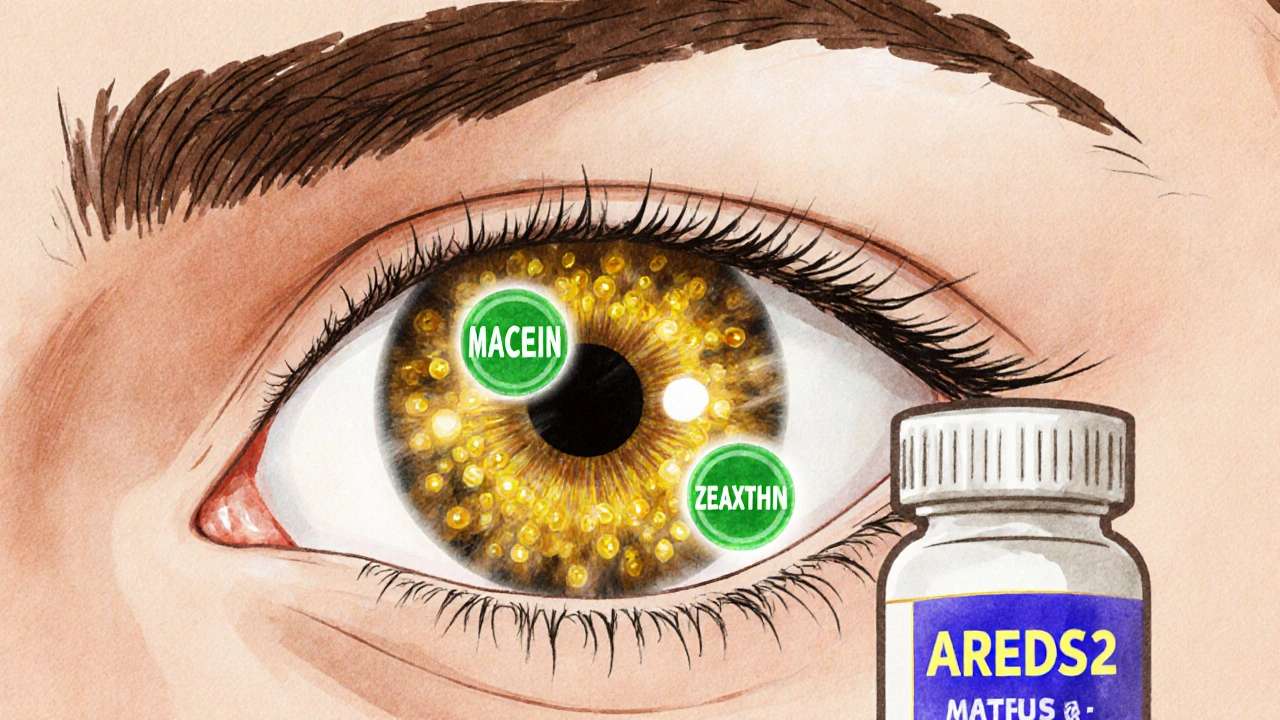AREDS2 Vitamins: What They Are, Who Needs Them, and What the Science Says
When it comes to protecting your vision as you age, AREDS2 vitamins, a specific combination of antioxidants and minerals proven in clinical trials to slow vision loss from age-related macular degeneration. Also known as Age-Related Eye Disease Study 2 formulation, this supplement isn’t just another vitamin pill—it’s one of the few eye health products backed by large-scale, peer-reviewed research. Unlike general multivitamins, AREDS2 was designed for people already showing early signs of macular degeneration, not for preventing it in healthy eyes.
The formula changed after the original AREDS study. Scientists swapped out beta-carotene (which raised lung cancer risk in smokers) for lutein and zeaxanthin, two carotenoids naturally found in the retina that filter harmful blue light and reduce oxidative stress. They also lowered zinc levels and added omega-3s, though those didn’t show extra benefit. The result? A safer, more effective blend that reduces the risk of advanced macular degeneration by about 25% over five years in high-risk patients.
These vitamins don’t restore lost vision or cure macular degeneration. But for someone with intermediate dry AMD—characterized by medium-sized drusen or pigment changes—they can help keep vision stable longer. That’s why eye doctors often recommend them after a dilated exam confirms the condition. If you’re over 55, have a family history of AMD, or smoke, asking your eye care provider about AREDS2 makes sense. It’s not for everyone, but for the right person, it’s one of the clearest wins in preventive eye care.
What you won’t find in AREDS2? Magic. No miracle cures. No herbs. No unproven blends marketed as "superior". Just the exact doses tested in the National Eye Institute’s study: 500mg vitamin C, 400IU vitamin E, 80mg zinc, 2mg copper, 10mg lutein, and 2mg zeaxanthin. Many over-the-counter versions copy this, but not all. Some add extra ingredients that do nothing—or even interfere. Always check the label against the original formula.
And here’s the catch: it only works if you take it consistently. Missing doses or stopping after a few months defeats the purpose. This isn’t a quick fix—it’s a long-term habit, like taking blood pressure meds. The benefits build slowly, over years. If you’re not seeing immediate results, that’s normal. The goal isn’t better vision today, but avoiding blindness tomorrow.
There are no shortcuts here. No gummies, no eye drops, no "natural" alternatives that match the evidence. If you’re considering AREDS2, make sure you’re getting the real thing. And if you’re on other medications—like blood thinners or antibiotics—talk to your doctor. Zinc can interact with some drugs, and high-dose vitamins aren’t always harmless.
Below, you’ll find real-world comparisons, safety tips, and insights from people who’ve used these vitamins for years. Some found them life-changing. Others saw no difference. The science is clear, but individual results vary. What matters most is knowing whether you’re in the group that actually benefits—and why.

AMD Vitamins: What the AREDS2 Study Says and Who Really Needs Them
AREDS2 vitamins are a proven supplement formula for slowing advanced age-related macular degeneration. Learn who should take them, what’s in them, and why they don’t work for prevention or early AMD.





